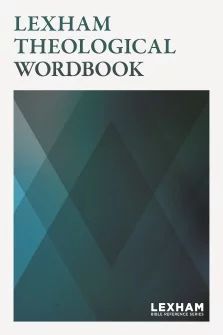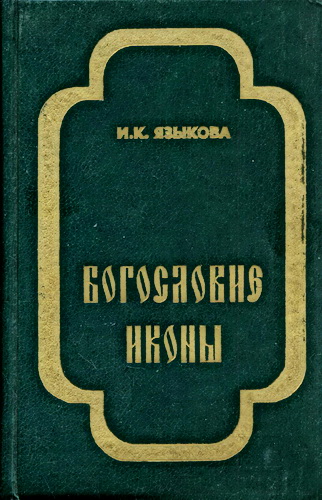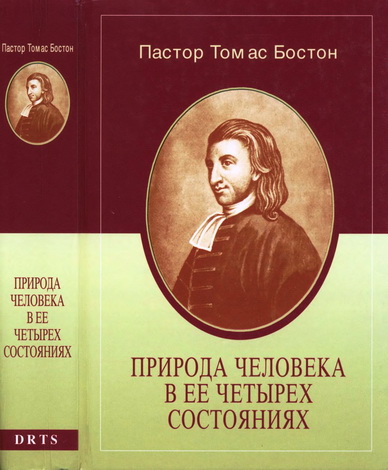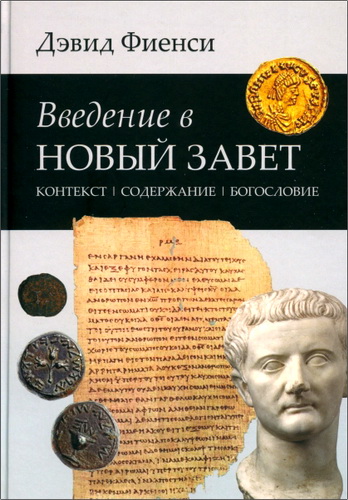
Mangum - The Lexham Theological Wordbook - модуль BibleQuote
Douglas Mangum - The Lexham Theological Wordbook
Bellingham, WA: Lexham Press, 2014
We designed the Lexham Theological Wordbook as an aid for anyone studying the biblical languages—especially those using electronic tools such as Logos Bible Software. Digital tools provide access to details about Hebrew and Greek words and allow easy searches that show where and how often a term is used. But the raw data these searches return must still be analyzed, whether one is working on a word study, an exegetical paper, or an academic article. Our goal for this project was to create a resource that explains this raw data for some of the most important and most common concepts relevant to the biblical world and then integrates that explanation into a big-picture overview of the category itself.
This wordbook is a modest contribution toward explaining Hebrew and Greek words and biblical conceptualizations. It stands on the foundation built by many excellent works in Hebrew and Greek lexicography from the 19th century to the present. Serious work on classical Hebrew or classical and Hellenistic Greek, for example, could scarcely be attempted without the use of resources such as the Hebrew-Aramaic Lexicon of the Old Testament (HALOT) or the Greek English Lexicon of the New Testament and Early Christian Literature (BDAG), or even classic works like Gesenius’ lexicon and that of Brown, Driver, and Briggs (BDB) in Hebrew, or Liddell and Scott in classical Greek (LSJ). In addition to standard lexicographic resources, the foundation beneath the Lexham Theological Wordbook includes the many theological dictionaries, lexicons, and wordbooks that have provided thorough analyses of biblical and theological concepts and linguistic expressions. Some noteworthy resources in this regard are the New International Dictionary of Old Testament Theology and Exegesis (NIDOTTE), the Theological Dictionary of the New Testament (TDNT), and the Exegetical Dictionary of the New Testament (EDNT). Similarly, this project is indebted to a wide range of biblical reference works—various Bible dictionaries, encyclopedias, and lexicons—dealing with biblical or theological concepts, including, but not limited to, the Anchor Yale Bible Dictionary (ABD), the International Standard Bible Encyclopedia, Revised (ISBE), the Dictionary of Biblical Imagery, and the Lexham Bible Dictionary (LBD).
The level of detail in many of these resources makes them indispensable for serious academic work, but it also makes them less accessible to students and virtually inaccessible to people with only a general interest in the meanings of biblical terms. The Lexham Theological Wordbook, by contrast, is designed to be useful for students in the process of learning biblical languages (by providing a big-picture synthesis of concepts and essential language information) and accessible to a general audience interested in understanding words in context without the burden of intensive language study. We also hope this wordbook will prove useful to those who have the necessary language skills to make use of TDNT or NIDOTTE on their own but want an easily accessible synthesis of the essentials rather than a detail-heavy overview. In this way, Lexham Theological Wordbook serves as a launching pad for further study for anyone interested in biblical words and concepts.
* * *
Divine Beings
Divine beings are supernatural creatures created by God to serve him and do his bidding; some continue to serve God while others have rebelled.
Concept Summary
In contemporary English terminology, this category includes “angels” and “demons.” However, many of the popular features associated with angels and demons developed after the biblical period and should not be anachronistically applied to the biblical descriptions. There are several terms used in the Bible to designate divine beings. Angels, including the Angel of Yahweh, are the most prominent category. The word “angel” comes from the Greek word ἄγγελος (angelos, “messenger”). This is the word that the Septuagint (lxx) and later the NT use to translate the Hebrew term מַלְאָךְ (malʾāk), which also means “messenger.” In the most fundamental sense, the Bible depicts these divine beings as messengers or agents working on behalf of Yahweh (Psa 103:20). However, the Bible also uses “angels” to refer to supernatural beings that do not work for Yahweh but rather have joined the devil or Satan in opposing God (Rev 12:9; compare Luke 10:17–20). In ancient Near Eastern polytheistic contexts, divine emissaries were lower-ranking gods serving the more powerful deities. This background is evident in the occasional use of אֱלֹהִים (ʾĕlōhîm, “gods”) with reference to supernatural beings (e.g., Psa 8:5).
The English word “demon” also derives from Greek. The NT uses δαίμων (daimōn, “demon”; Matt 8:31) and δαιμόνιον (daimonion, “demon”; Matt 9:33–34), among other terms, for evil supernatural beings, though the Graeco-Roman use of the words was neutral (i.e., supernatural but not inherently good or evil). There is no direct equivalent in Hebrew; however, the Hebrew word שֵׁד (šēd) is translated as δαιμόνιον (daimonion, “demon”) in the Septuagint (Deut 32:17). Other terms used for supernatural beings include בְּנֵי הָאֱלֹהִים (bĕnê hāʾĕlōhîm, “sons of God”; Job 1:6); קָדוֹשׁ (qādôš, “holy one”; Deut 33:2); כְּרוּב (kĕrûb, “cherub”; Gen 3:24); שָׂרָף (śārāp, “seraph”; Isa 6:2); עִיר (ʿîr, “watcher”; Dan 4:13); ἀρχάγγελος (archangelos, “archangel”; 1 Thess 4:16); and διάβολος (diabolos, “devil”; Rev 12:9). In context, still more general terms like prince (שַׂר, sar; Dan 10:13), ruler (ἀρχή, archē; Col 1:16), throne (θρόνος, thronos; Col 1:16), power (δύναμις, dynamis; Eph 1:21), and authority (ἐξουσία, exousia; Col 1:16; Eph 1:21) may be used with reference to divine beings.
Theological Overview
Although the Bible emphasizes that Yahweh is the true and supreme God (Deut 4:35, 39; 1 Kgs 8:60; Isa 45:21–22), many other supernatural beings are mentioned in Scripture. Many of these beings serve Yahweh by delivering messages, rescuing those in distress, and carrying out God’s judgment on the wicked. Humans are warned not to worship these beings but rather to see them as fellow servants of God (Rev 19:10; 22:8–9).
Not all divine beings serve God, however. The NT mentions a war in heaven, during which the devil and his angels are cast out (Rev 12:7). These beings are capable of sin and leading people astray (Gal 1:8; 2 Pet 2:4; Jude 6), and there are also evil forces against which the believer must struggle (Luke 22:53; Eph 2:2–3; Col 1:13).
Although supernatural beings are mentioned frequently in the biblical text, they are not the focus. The Bible mentions these beings in order to communicate the will of God, emphasize his sovereignty, and highlight his power to save sinful humanity despite the opposition of evil forces. Ultimately, God will triumph.
Lexical Information
Old Testament
מַלְאָךְ (malʾāk); Aram. מַלְאַךְ (malʾak). n. masc. messenger, angel. A messenger; often a supernatural emissary sent by God to deliver a message or carry out a task.
This word literally means “messenger.” It can refer to human messengers (e.g., Gen 32:3), but slightly over half the time in the ot, it refers to a divine messenger and is then typically translated “angel.” Often divine messengers are more specifically designated with the phrase מַלְאַךְ יְהוָה (malʾāk Yahweh, “angel of Yahweh”). Angels are very important in the scope of the OT. They are frequently sent to deliver messages to human beings, both men and women. In some passages, the Angel of Yahweh is not clearly distinguished from Yahweh himself (e.g., Exod 3:2–6; Judg 6:11–18), but in other cases the angel is certainly distinct from Yahweh himself (e.g., 2 Sam 24:16). In addition to delivering messages, angels also carry out God’s judgment on the wicked and assist the righteous.
The Aramaic word מַלְאַךְ (malʾak) occurs only twice in the Bible. In Daniel 3:28, Nebuchadnezzar states that God sent an angel (malʾak) to deliver the three young men from the fire. Daniel, in Daniel 6:22, says that an angel (malʾak) was sent by God to rescue him from the lions. It may be significant that the term malʾak (“angel”) is used to indicate a being that is sent on a mission to rescue someone from danger, while different words are used for other heavenly beings in the book of Daniel.
כְּרוּב (kĕrûb). n. masc. cherub, cherubim. A winged divine being associated with God’s presence via his throne, his chariot, and the ark of the covenant.
Cherubim appear frequently in the OT, especially in connection with the ark of the covenant. The word kĕrûb is probably related to the Akkadian word kāribu, referring to a divine being associated with a sanctuary (see CAD, s.v. “kāribu” and compare s.v. “kurību”). God instructed the Israelites to put two cherubim on the mercy seat of the ark (Exod 25:18–22; 37:7–9). They are described only as having wings and faces, perhaps implying that the Israelites already knew what cherubim looked like. The veil of the tabernacle (Exod 26:1), the walls of Solomon’s temple (1 Kgs 6:29), and the walls of the temple in Ezekiel’s vision (Ezek 41:15) were adorned with images of cherubim. In Genesis 3:24, cherubim are stationed at the entrance of the garden of Eden to guard the way to the tree of life. God is frequently referred to as “He who dwells above the cherubim” (e.g., 1 Sam 4:4; Isa 37:16; Psa 80:1). This is undoubtedly alluding to the cherubim of the ark; however, Yahweh is also described as riding real cherubim (e.g., 2 Sam 22:11; Ezek 10). In Ezekiel, the cherubim are described in more detail as having four faces (human, eagle, ox, lion) and two wings and being as bright as fire (Ezek 1:10–13; Ezek 10; compare Rev 4). In Ezekiel, the cherubim are also referred to as “living ones” (חַיָּה, ḥayyâ; e.g., Ezek 10:20).
קָדוֹשׁ (qādôš); Aram. קַדִּישׁ (qaddîš). adj. holy (one). One who is holy; referring to God, other divine beings, or holy men and women.
While qādôš is an adjective, it is often used substantively (that is, as a noun) and translated as “holy one.” In some cases it refers to divine beings. The holy ones (qādôš) are part of Yahweh’s heavenly entourage and are usually described as a group. This group surrounds God’s throne and praises him (e.g., Deut 33:2; Psa 89:5; Zech 14:5). In Daniel 8:13, two beings described as holy ones (qādôš) speak to each other in Daniel’s vision. Elsewhere Daniel (Dan 4:3, 17, 23) uses the Aramaic equivalent qaddîš similarly; in these instances the Aramaic word is also synonymous with עִיר (ʿîr, “watcher”). In Daniel 7:18, the “holy ones (qaddîš) of the most high” are saints or righteous people.
אֱלֹהִים (ʾĕlōhîm). n. masc. pl. God, gods, divine beings. Used for gods or divine beings in general as well as for Yahweh.
The word literally means “gods.” The form of the word is plural, but when it is used to refer to Yahweh it is usually treated grammatically as a singular noun and occurs with singular verbs and adjectives. When it refers to other beings, it is usually treated grammatically as a plural noun. It can refer to foreign gods or idols (Gen 31:17–35; Exod 20:3), angels (Psa 8:5), and spirits (1 Sam 28:13). Psalm 82:1 portrays God (ʾĕlōhîm) as holding court in a council of divine beings (ʾĕlōhîm).
בְּנֵי הָאֱלֹהִים (bĕnê hāʾĕlōhîm). n. masc. pl. sons of God. Used to describe angels or the angelic host.
Several variants of the term “sons of God” refer to divine beings. The form bĕnê hāʾĕlōhîm (“sons of God”) appears in Job 1:6; 2:1, while the related form בְּנֵי אֱלֹהִים (bĕnê ʾĕlōhîm, “sons of God”) appears in Job 38:7. Both of these use the word אֱלֹהִים (ʾĕlōhîm) for “God”; the only difference is that the former expression uses a definite article before ʾĕlōhîm and the latter does not. A similar expression, בְּנֵי אֵלִים (bĕnê ʾēlîm, “sons of gods”), is used in Pss 29:1; 89:6; instead of ʾĕlōhîm, this phrase uses the plural of the word אֵל (ʾēl, “god”). The bĕnê hāʾĕlōhîm are associated with the heavenly host and are part of Yahweh’s entourage (compare Job 1–2; 1 Kgs 22:19–23). An important textual variant at Deut 32:8 also likely refers to divine beings as “sons of God” (see “Deuteronomy 32:8 and the Sons of God” in the Faithlife Study Bible).
The term bĕnê hāʾĕlōhîm also appears in Gen 6; there has been some debate about what it refers to in this passage. While neither the OT nor the NT explain the passage explicitly, extrabiblical literature tends to interpret the passage in terms of fallen angels (see especially Jubilees 7:20–28; 1 Enoch 6–10), and 2 Pet 2:4 refers to “the angels who sinned” and were imprisoned awaiting punishment, which could be an allusion to this episode. Several rabbinic sources dispute the connection with fallen angels (Genesis Rabbah 26:2–7), and the Targumim consistently translate “sons of God” in Gen 6 as “sons of the judges” (Targum Neofiti) or “sons of the leaders” (Targum Onqelos; Targum Pseudo-Jonathan). The Targum does translate the phrase in Job as “angels.”
A similar Aramaic phrase occurs in Dan 3:25: King Nebuchadnezzar sees the angel (מַלְאַךְ, malʾāk; Dan 3:28) that God sent to protect Shadrach, Meshach, and Abednego in the furnace and says he looks like “a son of the gods” (בַּר־אֱלָהִין, bar-ʾĕlāhîn).
רוּחַ (rûaḥ). n. fem. breath, wind, spirit. Can refer to immaterial beings as well as to wind, breath, human spirits, and the spirit of God.
This word has a broad range of meanings. It can refer to wind (e.g., Exod 10:19), to the breath of humans (e.g., Job 19:17), and of animals (e.g., Gen 7:22), to the animating spirit of humans (e.g., Psa 31:5), and to the spirit of God, i.e., the Holy Spirit (e.g., Num 27:18). It occasionally refers to other immaterial beings; thus, 1 Sam 16:14–16 refers to an evil (רַע, raʿ) spirit (rûaḥ) sent to torment Saul, and 1 Kgs 22:18–22 tells of the host of heaven (or divine council) being assembled before Yahweh and a spirit (rûaḥ) from among them volunteering to be a lying spirit (rûaḥ) in the mouths of the prophets of King Ahab.
שֵׁד (šēd). n. masc. demon. A term used to refer to divine beings or foreign deities that are unworthy of worship.
This term is used only twice in the Hebrew Bible (Deut 32:17; Psa 106:37), and it is probably related to the Akkadian word šēdu, meaning “demon, protective deity, or malevolent spirit” (CAD, s.v. “šēdu”). The Bible chastises those who sacrifice to these beings, as only Yahweh is to be worshiped. The lxx translates the term as δαιμόνιον (daimonion, “demon”; Deut 32:17; Psa 105:37 lxx [106:37 mt and English]).
עִיר (ʿîr). Aram. n. masc. watcher. A being that is similar to an angel.
Watchers are only mentioned in the biblical text in Dan 4 (Dan 4:13, 17, 23); in each case the term is equated with קַדִּישׁ (qaddîš, “holy one”). The etymology is uncertain. The lxx translates the term simply as ἄγγελος (angelos, “angel”) in Dan 4:13, 23. While “watchers” have a negative association in some extrabiblical literature (especially in Jubilees and 1 Enoch), in the biblical text the term is a positive one.
שָׂרָף (śārāp). n. masc. burning one, seraph; pl. seraphim. A divine being associated with the throne room of God.
Divine beings called seraphim are only explicitly found in Isa 6. They are described as having faces, hands and feet, and six wings, and as praising God. The word śārāp is derived from the verb שׂרף (śārap, “to burn”). The word śārāp is also used to describe fiery serpents (Num 21:6–9; Deut 8:15; Isa 14:29; 30:6).
New Testament
ἄγγελος (angelos). n. masc. messenger, angel. A being that is to deliver a message or perform a task.
Like Hebrew מַלְאָךְ (malʾāk), Greek angelos literally means “messenger” but is also used to refer to angels. However, in the NT angelos is only rarely used to refer to human messengers (e.g., Luke 7:24; Jas 2:25). Angels in the NT play a similar role to the angels of the OT. They deliver messages and rescue people from danger (e.g., Matt 2:13–20; Luke 1:11–38; Acts 12:7–11). They are also frequently mentioned as being involved in the judgment and in the entourage of the Father and Son, especially at the second coming of Christ (e.g., Matt 13:39–49; Mark 13:27; Acts 12:23; 2 Thess 1:7). The NT also mentions that the devil has angels of his own (Matt 25:41; Rev 12:7) and that the angels are not immune to sin (2 Pet 2:4; Jude 6).
The phrase ἄγγελος κυρίου (angelos kyriou, “angel of the Lord”) is used in the lxx to translate the Hebrew term מַלְאַ֧ךְ יְהוָ֛ה (malʾāk Yahweh, “angel of Yahweh”), so it is not surprising that it is used in the NT as well. Again, the terminology indicates that the angel is sent from God to give a message or complete a task. Unlike the OT usage, the NT does not blur the line between God and his angel, and the Angel of the Lord who is introduced in Luke 1:11 is even identified by name in Luke 1:19: Gabriel (see Dan 8:16; 9:21 for a figure named Gabriel who had the appearance of a man but is not explicitly identified as an angel). This does not necessarily mean that every mention of the Angel of the Lord is the same being, as the phrase occurs often without the definite article, and can either mean “the Angel of the Lord,” or “an angel of the Lord.”
ἀρχάγγελος (archangelos). n. masc. archangel. The angel who is a chief or leader of the angels.
Archangelos is a compound word combining the word for “ruler” (compare ἀρχη, archē) and the word ἄγγελος (angelos, “angel”). An archangel is mentioned twice in the NT (1 Thess 4:16; Jude 9); the archangel in Jude 9 is called Michael. Michael is also mentioned in Rev 12:7 as leading an army of angels (angelos) in the battle against Satan and his angels (angelos). Michael “the prince” is mentioned in Daniel (Dan 10:13, 21; 12:1) and is probably the character to whom the NT refers.
δαίμων (daimōn). n. masc. demon. A malicious or evil being.
This particular word is not used often. It is only used once in the NT (Matt 8:31, where it refers to the demons who possessed two men in the region of the Gadarenes) and once in the Septuagint (Isa 65:11). In the Septuagint occurrence, the word is used to translate the Hebrew word גַּד (gad, “fortune, destiny”). The more common word used to signify “demon” is δαιμόνιον (daimonion).
δαιμόνιον (daimonion). adj. neut. demon. A malicious or evil being.
This word is the neuter form of the adjective δαίμόνιος (daimonios), which is an adjective related to δαίμων (daimōn, “demon”). However, in the NT daimonion is consistently used substantively (i.e., like a noun). It used in the lxx to translate the Hebrew word שֵׁד (šēd; Deut 32:17; Psa 106:37; Psa 105:37 lxx). In the NT, the demons (daimonion) are beings that are opposed to Christ and his followers. They are mentioned mostly in the Gospels, almost always in relation to possession (e.g., Matt 9:33–34; Luke 8:27–39). The prince (ἄρχων, archon) of demons (daimonion), Βεελζεβοὺλ (Beelzeboul, “Beelzebul”), is mentioned and is identified with Satan (e.g., Luke 11:14–20). First Corinthians 10:20–21 says that sacrifices of polytheists are offered to demons (daimonion). The word daimonion is also used to mean “god, deity” in Acts 17:18: Some of the philosophers of Athens said that Paul seemed to be a preacher of foreign gods (daimonion).
διάβολος (diabolos). adj. slanderous (one), adversarial (one), Devil. The leader of the fallen angels.
In the nt, this adjective is usually used as a noun meaning “slanderer, adversary.” In a few instances it refers to slanderous humans (e.g., 1 Tim 3:11; 2 Tim 3:3). It is used by the lxx to translate the Hebrew word שָׂטָן (śāṭān, “adversary”); this Hebrew word is also borrowed into Greek as the name Σατανᾶς (satanas, “Satan”). The NT uses the terms diabolos and satanas to refer to the same figure (Matt 4:10; Rev 12:9; 20:2). The devil (diabolos) tempted Jesus in the wilderness (Matt 4:1–11; Luke 4:1–13), and he leads his own angels (ἄγγελος, angelos; Matt 25:41). Jesus calls him a liar and the father of liars (John 8:44). The diabolos also incited Judas to betray Jesus (John 13:2).
πνεῦμα (pneuma). n. neut. spirit, breath, wind. Usually refers to the Holy Spirit, the spirits of humans, or immaterial beings; occasionally refers to breath or wind.
This is the usual Septuagint translation of Hebrew רוּחַ (rûaḥ, “breath, wind, spirit”). While it has a similar range of meaning, the “breath” and “wind” senses are rare in the NT; most uses refer to the Holy Spirit (e.g., Matt 12:18; Mark 12:36), the spirits of humans (e.g., Rom 1:9) or to immaterial beings. It often appears in the phrase ἀκάθαρτον πνεῦμα (akatharton pneuma, “unclean spirit”), especially in the Gospel of Mark (e.g., Mark 5:13–18); the phrase is synonymous with δαιμόνιον (daimonion, “demon”; Luke 9:42). Sometimes a spirit is not specified as unclean but is either identified as evil using another expression (e.g., Matt 12:45; Luke 7:21; 1 Tim 4:11) or is recognizably evil from context (e.g., Mark 9:17; Luke 10:20). Not only evil immaterial beings are referred to with the word pneuma; Hebrews 1:13–14 refers to God’s angels (ἄγγελος, angelos) as “ministering spirits (pneuma),” and John commands his readers to “test the spirits (pneuma) to determine if they are from God” (1 John 4:1).
ἀρχη (archē). n. fem. beginning, ruler. Can refer to a kind of supernatural being.
The primary meaning of archē is “beginning,” but it can also mean “ruler.” It can refer to human rulers (Luke 12:11; Titus 3:1). The plural form sometimes refers to a class of supernatural beings; no individual beings are ever identified as archē. The rulers (archē) are usually portrayed as adversarial to Christ and his people (e.g., Eph 6:12; Col 2:15).
ἄρχων (archōn). n. masc. ruler. Ruler, either human or supernatural.
This word is related to ἀρχη (archē, “beginning, ruler”). In the nt, it is often used for human rulers (e.g., Acts 4:8), but it is also used for divine beings. Unlike archē, it is often used to refer to individual beings; for example, Beelzebul the “ruler (archōn) of demons (daimonion)” (Matt 12:24; Mark 3:22; Luke 11:15); the “ruler (archōn) of this world” (John 12:31; 14:30; 16:11); and “the ruler (archōn) of the power (ἐξουσία, exousia) of the air” (Eph 2:2).
χερουβ (cheroub). n. neut. cherub; pl. cherubim. A winged divine being associated with God’s throne, his chariot, and the ark of the covenant.
This word is the Greek transliteration of Hebrew כְּרוּב (kĕrûb, “cherub”) and is the regular equivalent of kĕrûb in the Septuagint; both are used to refer to cherubim as divine beings and to refer to images of cherubim. Hebrews 9:5 uses it to refer to the images of the cherubim above the ark of the covenant. As discussed above under the entry for kĕrûb, Ezekiel also refers to the cherubim as “living ones” (חַיָּה, ḥayyâ); in the Septuagint this term is translated with Greek ζῷον (zōon, “living being, animal”), and this term occurs repeatedly in Revelation to refer to divine beings (e.g., Rev 4:6–9).
ἐξουσία (exousia). n. fem. power, authority. An authority, either human or supernatural.
This is a general word for “power” or “authority” and is often used for human authority (e.g., Matt 8:9). It is used to refer to supernatural forces in several ways. It is used in the constructions “power (exousia) of darkness” (Luke 22:53; Col 1:13) and “power (exousia) of Satan” (Acts 26:18), but these refer to power as an abstract quality, not to supernatural beings. However, in several passages (1 Cor 15:24; Eph 1:21; 6:12; Col 2:15; 1 Pet 3:22) “authorities” (exousia) refers in a generic way to supernatural beings, which Christ has overcome and against which Christians must struggle.
στοιχεῖον (stoicheion). n. neut. elemental power, elemental spirit. A kind of supernatural force.
In the nt, this word occurs only in the plural. The basic meaning is “elements”; however, in four of the seven instances the term is used to indicate the “elemental forces” in the world against which the believer must struggle (Gal 4:3, 9; Col 2:8, 20). Although the term is impersonal, it conveys a sense of supernatural power and a will to direct earthly events.
θρόνος (thronos). n. masc. thrones. A kind of supernatural being.
The basic meaning of thronos is “throne” in the literal sense. However, in Colossians 1:16 thrones (thronos) are some kind of supernatural beings that were created by Christ; the passage gives no detail about these beings, so their precise nature is unclear. Thrones are also mentioned in the NT as places where the apostles will sit (Matt 19:28; Luke 22:30) and where the 24 elders sit (Rev 4:4; 11:16; 20:4). The concept in Col 1:16 might be connected to these ideas; it may also be a reference to Dan 7:9, which speaks of thrones (Aramaic כָּרסֵא, korsēʾ) being placed for Yahweh to sit on (compare the idea of Yahweh sitting on the cherubim).
κυριότης (kyriotēs). n. fem. power, dominion. Either human lordship or a class of supernatural being.
This abstract noun is derived from the word κύριος (kyrios, “lord”). It means “lordship, power, dominion,” and sometimes refers to human authority (e.g., 2 Pet 2:10), but in Eph 1:21 and Col 1:16 it is used to signify a class of supernatural beings generically, similar to the usage of “thrones” (θρόνος, thronos) and “elemental powers” (στοιχεῖον, stoicheion). These passages do not indicate anything about the moral stance of the beings; they only indicate that Christ, as both creator and redeemer, is higher than them.
J. A. McGuire-Moushon
See Also
• Related Concepts: Authority; Celestial Bodies; Deity; Idolatry
• Bible Sense Lexicon: angel, angel-like, apparition, to appear (supernatural), being (elemental), stars ⇔ army, cherub, chief angel, creature (supernatural), demon, demonic, desert creature (supernatural), false god ⇔ idol, ghost, angel ⇔ glory, goat demon, deity, holy one angel, supernatural being ⇔ holy one, supernatural being ⇔ king, supernatural being ⇔ prince, ruler (supernatural), seraph, supernatural being ⇔ son, speech act, supernatural being, supernatural being (agent), supernatural created being ⇔ son of God, supernatural entity, authority ⇔ throne
• Gods The Lexham Bible Dictionary
• Divine Council The Lexham Bible Dictionary
• Elohim as “Gods” in the Old Testament Faithlife Study Bible
• Deuteronomy 32:8–9 and the Old Testament Worldview Faithlife Study Bible
• Deuteronomy 32:8 and the Sons of God Faithlife Study Bible
• New Testament Terms for Unseen Divine Beings Faithlife Study Bible





Комментарии
Пока нет комментариев. Будьте первым!